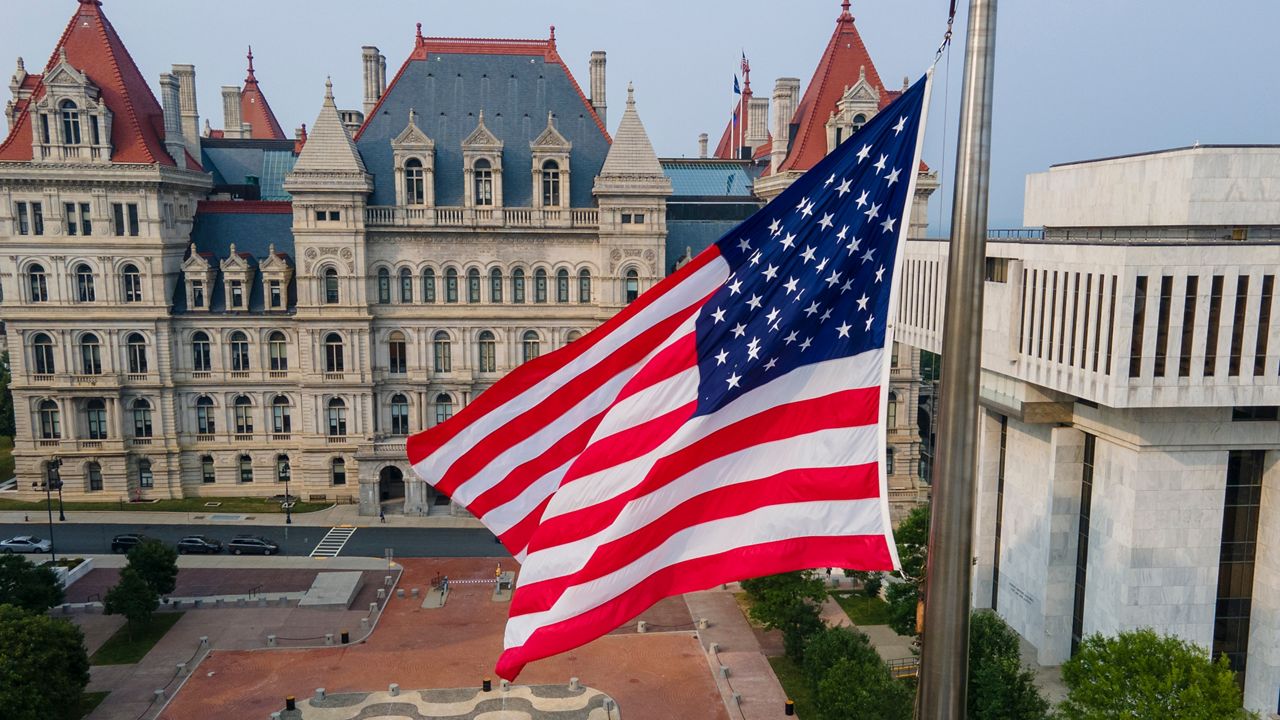With Friday largely being the final say in what will be accomplished this legislative session, some information started to emerge about what will and will not reach the governor’s desk.
As Gove. Kathy Hochul’s eleventh-hour decision to delay the implementation of congestion pricing continues to wreak havoc on the final unscheduled hours of the legislative session, questions continued to swirl about to what degree the decision and the resulting chaos will impact what actually gets passed.
The announcement was made Wednesday, one day before session was scheduled to end, and the governor weighed in on the timing of that announcement late Friday as lawmakers continued to express frustration that opportunities to pass legislation were missed as a result.
“You want to get them while they’re still in session, instead of after June 30,” Hochul said of the decision. “Leaders sometimes need to listen more, and I realized that.”
Despite upending the legislative process, multiple bills being closely watched did pass, or appeared poised to pass as of Friday evening. Perhaps most notable were two bills intended to regulate how young people access social media.
If signed into law, the SAFE for Kids Act will require social media companies to turn off addictive algorithms for users in the state under the age of 18, unless a parent or guardian gives consent, while also requiring minors to verify their age, or for platforms to get parental consent to send notifications to young users between midnight and 6 a.m.
The other measure, called the Child Data Protection Act, would mandate defaulted privacy settings for minors and limit internet companies' ability to collect or share their personal data.
It’s the enforcement of that – the age verification requirement, in part – that still has trade groups representing big-tech companies like Google and Facebook’s parent company, Meta, questioning the legislation.
"Age verification is the single most important factor in determining whether this legislation will actually help kids,” Tech NYC President and CEO Julie Samuels said in a statement Tuesday.
Assemblymember Nily Rozic who co-sponsored the bills, reflected on their significance Friday afternoon.
“This is first in the nation legislation that protects kids and their online data, we are very excited about being a beacon to other states,” she said.
Other legislation coming down to the last minute included a bill allowing the direct intrastate and interstate shipment of alcoholic beverages.
Assemblymember Donna Lupardo told Spectrum News 1 late Friday afternoon she is optimistic the bill will pass.
Among the items receiving a big post-budget push from lawmakers was for a group of bills to “rescue EMS.”
Lupardo said that while lawmakers were unable to reach an agreement on several components of that package, a primary bill did pass which would allow EMS organizations to treat patients in place, or bring them to a location other than a hospital, such as an urgent care.
As it stands, for Medicaid patients, those organizations are only reimbursed if they transport someone to a hospital.
“They’re losing a lot of money providing a service and not getting paid for it, so this will stabilize their finances in a very important way and keep the ball rolling so we can get more done next year,” she said.
Another bill in question in the late afternoon hours Friday would create a short-term rental registry.
Advocates say communities across the state are facing a severe shortage of affordable housing and believe the growing number of short-term rentals are a contributing factor as homes that should be occupied full-time have been turned into investment properties or short-term rentals.
The registry would require property owners to register their units with the Department of State every two years. There would be a small fee, but supporters of the proposal stressed it’s not a new tax, nor would it impact the rental options property owners have today.
“We are not trying to shut down anything, we are just trying to level the playing field,” Assembly sponsor Pat Fahy said. “Hotels and motels pay their taxes and if you stay there you pay state sales tax and occupancy tax. We have thousands of airbnbs, they are businesses, the folks who have them have full right to have them, we’re just trying to level the playing field.”
Prospects look grim for the NY HEAT Act. If it were to pass in the Assembly, it would need a message of necessity which seems unlikely, while a bill lawmakers expected to pass earlier in the week that would significantly limit single-use plastics is also expected to die in the Assembly.
The Climate Change Superfund, meanwhile, is expected to pass.



